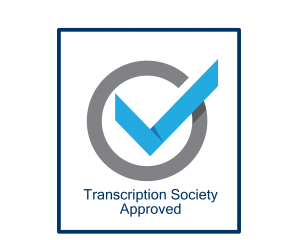‘Research needs to be conducted with the best of intentions and must not inflict harm or distress on participants, the wider public and yourself.’
Teesside University research policy
We recently noticed a study released last year by Marita Hennessy et al from the University College Cork on the effects of transcription on transcribers during qualitative research.
The full paper can be accessed here: https://journals.sagepub.com/doi/full/10.1177/10497323221101709. It is entitled ‘Outsourcing Transcription: Extending Ethical Considerations in Qualitative Research’ and was published in May 2022.
Marita and her colleagues noted that whilst there is significant attention given to researcher vulnerabilities, little has been written about the effect on transcribers, who ‘can potentially experience emotional distress and vicarious trauma’. The study looks into the experiences of a transcriber working on a recurrent miscarriage study.
I have quoted extensively from the article and outlined the contents in order to provide further discussion from a transcription company perspective. The article has given us food for thought in improving our systems in relation to triggering and ensuring best practice is applied when we deal with our own transcribers and work coming in.
Transcribers – the hidden professionals
The study notes that audio transcription is poorly addressed in general when it comes to the study of research, although there is quite a bit lot of discussion about the value of self-completing transcribing ‘in order to build intimate knowledge of the data’. There is limited guidance around the ethical issues involved in outsourcing transcription, particularly the support of transcribers.
Little attention as been paid to the psychological safety of transcriptionists who can potentially experience secondary stress and vicarious trauma in a similar way to professional interpreters. Hennessy notes that transcribers can work on different projects of a similar nature, with the potential for long-term impacts. She notes that the lack of attention to transcriptionists is unsurprising, ‘given the lack of status afforded to transcription work’.
Do No Harm
The paper argues that the principle of ‘do no harm’ with research should be extended to professional transcribers. It is a core ethical principle for healthcare research and forms part of ‘the duty of care that a researcher owes to research participants, and the duty that a research institution or sponsor owes to both participants and researchers’.
The study notes that:
- Transcribers can become emotionally connected to the ‘characters they construct based on the tapes’
- Transcribers can experience emotional distress and feelings of helplessness,
- ‘emotional labour’ (dealing with the voice-to-voice contact and concern for those whose voices they were hearing),
- ‘emotional work’ (dealing with the emotions of others/empathy and concern for researchers’ physical and emotional wellbeing) .
A study in 2016 noted that a lack of safeguarding protocols in relation to transcription can make the role very challenging ‘despite some use of coping skills such as acceptance, compartmentalising, desensitisation, rationalisation and detachment’. A suggestion in the study was made that transcribers should be briefed about any potentially distressing content to the recordings that they are transcribing, ‘as this would provide an opportunity to make an informed decision regarding taking on the role and prepare them for any potential emotional impact’. Similarly the same study noted that the emotional impact is important to consider as transcribers tend to work in a more isolated manner than researchers.’
Hennessy describes conducting an interview with the professional transcriber responsible for completing the recurrent miscarriage project to discuss her experience of transcribing the interviews.
The transcriber’s insight, as quoted in the study, is interesting:
‘Often people will contact me by email without giving me any information about their research topic. The only way I can get an insight, if I don’t ask them, is by the title in the signature of their email. So much communication is by email nowadays and working from home as a transcriber can be an isolating experience. If you aren’t careful you could go days without speaking to people… I had always transcribed audio without considering the personal impact of sensitive material, so I never expected the researchers to consider my feelings either. I am a people person, and sociology or psychology-based topics are what I enjoy transcribing most. I like hearing the human stories although at times I can find it hard to switch off. I don’t just type the words and forget about them. Maybe this is a skill that other transcribers have mastered better than me…The experience of transcribing [the specific research interviews] was much less stressful because I knew I was supported if any issues did arise… It is an added bonus when the researcher considers the transcriber’s feelings in this process as well.’
The study includes a number of recommendations for best practice:
- Transcriptionists should be briefed about the project at the outset, including, but not limited to, any potentially distressing content in the audio recordings that they are transcribing.
- Appropriate distress protocols, including briefing and debriefing, should be put in place if there are no such procedures within the transcriptionist’s own organisation, as applicable.
- Researchers should establish what is in place as part of any tendering/pre-contractual (or more informal) processes.
- The use of informal check-ins is recommended.
- Potential risks, and protocols to minimise any harm should be documented within ethics applications, as a requirement.
Commentary
We note that this study was only completed based on the experiences of one transcriber undertaking one project, but as the writers of the study acknowledge, it is very difficult to get information on who completed what transcription work in order to conduct any research into it.
The study gives us lots to think about as a company in terms of how we address triggering & difficult emotional subjects with our transcribers, and also how our clients notify us of any audio files that may contain particular details we need to be aware of in order to be able to tell our transcribers so they can make an informed decision as to whether to take the work on.
As a company we have protocols in place for ensuring that transcribers can decline work based on informed decisions, but we take on board the advice above about briefing and debriefing. We provide all transcribers with support as and when needed, but a more formal support structure from our management team would clearly benefit our transcribers going forwards. Our own policy on trigger warnings & content notifications is here: https://www.universitytranscriptions.co.uk/trigger-warnings-content-notifications/









